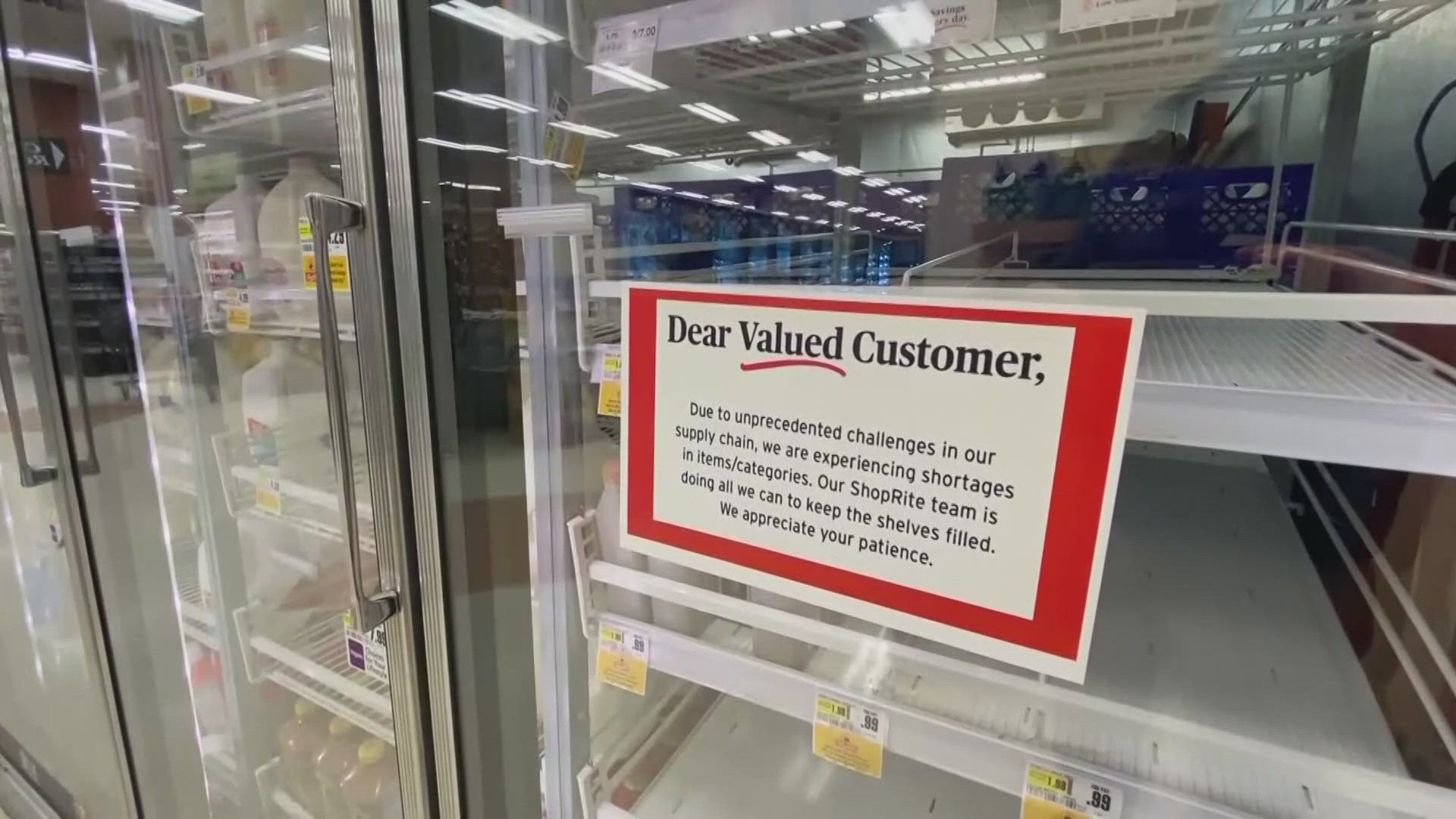NEW ORLEANS — Imports and exports through Louisiana, and along the east coast could be docked soon as a strike by port workers looms. The United States Maritime Alliance and the union that represents many of their workers- the International Longshoremen's Association, haven't come to an agreement on their contract. The current contract expires at midnight Tuesday morning. If they don't reach a new one – workers have threatened to strike.
While thousands of workers walk off work, your wallet could be impacted too.
"If we’re not able to get some of that food especially that’s imported in, you’re going to see a short-term spike on those prices because you're going to see the supply go down," Derrick Williams, a financial planner said.
Experts say we could see a similar supply chain issue as we did during the pandemic. Chair of the Department of Economics and Finance at the University of New Orleans, Professor Walter Lane, says with holidays coming up, shelves may look a little different.
"Christmas shelves can be affected by other things like fruits and things like that, things like that are very time sensitive so we can see prices going up on those there’s a lot of local and national effects," Lane said.
Lane says not everything will be affected across the whole country – he says it'll be more localized. Here in New Orleans, he says certain fruits and goods could see an increase in price.
"Coffee, we are the coffee capital of the United States, if the coffee doesn’t get in, Folgers doesn’t get it, community coffee all those people don’t get their raw beans to grind, so obviously that can affect coffee," Lane said.
Don't expect an immediate price jump though. Lane says all of this depends on how long the strike lasts.
"Anything under a couple of weeks won’t be too bad, but if we start talking about a month or more then it could really be difficult for many products that are affected," he said.
In a statement to WWL Louisiana, the Port of New Orleans said: "The Port of New Orleans has always maintained a great working relationship with International Longshoremen’s Association (ILA) members. A new contract was finalized in June between our terminal operators (Ports America and New Orleans Terminal) with the local ILA unions. With that said, we are preparing for a potential work stoppage on Oct. 1 if the United States Maritime Alliance (USMX) and ILA do not reach an agreement on their Master Contract, which governs all container operations on the East and Gulf Coasts (from Maine to Texas). Port NOLA proactively worked with its customers and terminal operators by offering weekend gate operations this past weekend to shippers and trucking companies in an effort to minimize supply chain disruptions.”
The International Longshoremen's Association says the United States Maritime Alliance is blocking a deal.
“The Ocean Carriers represented by USMX want to enjoy rich billion-dollar profits that they are making in 2024, while they offer ILA Longshore Workers an unacceptable wage package that we reject”, the ILA said. “ILA longshore workers deserve to be compensated for the important work they do keeping American commerce moving and growing. It’s disgraceful that most of these foreign-owned shipping companies are engaged in a ‘Make and Take’ operation: They want to make their billion-dollar profits at United States ports, and off the backs of American ILA longshore workers, and take those earnings out of this country and into the pockets of foreign conglomerates. Meanwhile, ILA-dedicated longshore workers continue to be crippled by inflation due to USMX’s unfair wage packages. “
“In addition, the shippers are gouging their customers that result in increased costs to American consumers. They are now charging $30,000 for a full container, a whopping increase from $6,000 per container just a few weeks ago. In just a short time, they went from 6K, to 18K, then 24K and now $30,000. It’s unheard of and they are doubling their $30,000 fee stuffing the same container from multiple shippers. They are killing the customers.”
WWL has reached out to the United States Maritime Alliance and have not heard back.


